Part-time students in financial hardship can apply for these grants. You will be immediately assessed when you apply for student aid in your province or territory. Students from the Northwest Territories, Nunavut, and Quebec are not eligible for this scholarship, and they offer their own financial aid schemes for students.
Canada Student Grant for Part-Time Students

This grant is available to part-time students who are in financial need. You are automatically assessed when you apply for student aid with your province or territory.
Eligibility
You may be eligible for this grant if you apply and meet the following criteria.
- have a financial need.
- are enrolled part-time in a suitable programme at a specified institution;
- have completed the courses for which you have previously received a grant;
- total family income thresholds for the Canada Student Grant: previous year’s gross annual family income
- If a student wishes to apply for a grant as a part-time student, the family’s gross income should be less than $64,204.
The grant amount varies for each family member; click on this link to find out what the grant amount is according to your family.
How much money could you get?
You could receive up to $3,600 annually until the end of the 2022–2023 school year. The gift will not exceed the amount of your assessed need. For example, if your assessed need is $1,200, you will receive a $1,200 award. The school year begins on August 1 and ends on July 31.
Apply with your province or territory
Go to your province’s student grants and loans service to find out if you qualify for student loans and grants. Find out how much you could obtain by combining your student scholarships and loan applications.
Quebec Student Aid

Québec students with insufficient financial resources can apply for loans to pursue part-time secondary school vocational training, college or university studies.
Eligibility Requirements
If you meet the following criteria, you are eligible for the Loans Program for Part-Time Studies:
- When applying for financial assistance, you must be a Canadian citizen or have permanent resident, refugee, or protected person status as defined by the Immigration and Refugee Protection Act, and you must live in Québec.
- You are not a full-time student since you are a part-time student.
- If you are enrolled in a recognized educational institution, your courses will consist of the following credits or course hours:
- 76 to 179-course hours in secondary school vocational training
- 76 to 179-course hours in college.
- 6 to 11 credits in university (undergraduate, graduate, and doctorate degrees)
- You have not reached the established loan program for part-time studies and have not exceeded the maximum number of months of studies for which financial support can be granted.
Coverage of educational and/or childcare expenses
If another government department or organization covers your educational and/or childcare expenses for a term, you will not be eligible for the Loans Program for Part-Time Studies.
Contact Aide financière aux études, Client Services
Monday-Friday, from 8:30 a.m. to 12:00 p.m. and 1:00 p.m. to 4:30 p.m. (except Wednesday and holidays).
Wednesday, from 10:00 a.m. to 12:00 p.m. and 1:00 p.m. to 4:30 p.m.
Québec City area: 418-643-3750
Montréal area: 514-864-3557
Toll-free in Canada and the USA: 1-877-643-3750
OSAP: Ontario Student Assistance Program
A mix of loans and/or grants may be available to you. The governments of Ontario and Canada sponsor OSAP part-time financing. The amount you get is determined by several variables, including your annual income (and, if appropriate, that of your spouse) and whether you have a permanent handicap and dependent children.
Alberta Student Aid
The Alberta Part-Time Grant is given to a part-time student engaged in a provincially recognized programme of study which meets the following criteria:
- is enrolled in a programme that is not eligible for a Canada Student Grant for Part-Time Studies, or
- has received the Canada Student Grant for Part-Time Studies throughout the loan year but is not eligible to receive the Canada Student Grant for Part-Time Studies for the study period when applying for the third semester of funding.
For the same study session, a student cannot receive both the Alberta Part-Time Grant and the Canada Student Grant for Part-Time Studies.
To be eligible:
A student is required to:
- hold protected person status or be a Canadian citizen or permanent resident (as defined in the Immigration and Refugee Protection Act)
- be deemed an Alberta resident living in Alberta during the duration of the study period and be enrolled in an educational institution in Alberta
- Have a household income equal to or below the Income Threshold and be in good standing on any previously issued Canada and/or Alberta student loans.
Eligible students may receive up to $600 per semester of study to pay tuition, mandatory fees, books, supplies, and instruments as reported. Travel and childcare expenses may also be taken into account.
Manitoba Student Aid
Manitobans who need financial assistance can apply for loans, grants, and bursaries through this programme. Student loans are based on your financial need and are intended to supplement rather than replace your resources. Simply applying for a student loan does not guarantee that you will receive one, and obtaining one does not guarantee you will receive the total amount. While a full-time student, you are not required to make payments or pay interest on a student loan.
You become eligible for loans and grants from Manitoba Student Aid and the Canada Student Loans Program when you apply for Manitoba Student Aid. You deal with both lenders separately while receiving and repaying your student loans.
To keep your Manitoba Student Aid eligibility, you must:
- At a college or university, pass at least 60% of a full course load each term (contact your school if you’re not sure what a full course load is for you).
- If you attend a private vocational or private training school, you must pass all your courses and maintain a 90% attendance rate.
Newfoundland and Labrador Student Aid
The Governments of Canada, Newfoundland, and Labrador collaborate to give student financial support to Newfoundlanders and Labradorians. Loans and grants are available to assist you in obtaining and paying for post-secondary education. StudentAidNL will evaluate you for both federal and provincial financial aid with only one application.
Create a StudentAidNL account or log in to your existing account to complete and submit your part-time aid application.
The student’s course load percentage is determined by the number of courses a student is taking in comparison to the standard number of courses for the programme of study at the post-secondary educational institution. Part-time students who take between 20% and 59 percent of a full course load are eligible for federal loans and grants, as well as provincial grants.
Northwest Territories Student Financial Assistance

The Department of Education, Culture, and Employment assists eligible Northwest Territories (NWT) inhabitants with post-secondary education-related fees. Transparency is important to the Department and the SFA Program, which entails clarity about the policies, norms, and laws regulating ECE and SFA. These documents are made public in order to establish a basis for fair and equal treatment for all SFA recipients and to assist NWT residents in navigating the SFA application process.
NWT Student Financial Assistance Program Contact
Education, Culture and Employment Income Security Programs Division
P.O. Box 1320
4501 50th Ave
Yellowknife, NT X1A 2L9
Telephone: (867) 767-9355
Toll-Free
(800) 661-0793
Nova Scotia Student Aid
The federal government provides Student Assistance in the form of loans and grants to support part-time students in Nova Scotia pursuing post-secondary education. This programme has recently been improved to make studying while working even easier. While in school, the government pays the interest on part-time student loans.
- Part-time student loan and grant income eligibility requirements have been raised, allowing more dependents to attend college, university, or trade school while working.
- The total amount of part-time loans are capped at $10,000.
- Part-time students are eligible for Canada Student Grants.
- Students can now use part-time loans and grants to study outside of Canada.
Prince Edward Island Students’ Financial Services

You may be eligible for financial support for costs such as tuition and books if you are a part-time student in an approved post-secondary programme through the Canada Student Loan and/or Grant for Part-Time Studies.
If you are a part-time student in an approved post-secondary programme, you may be eligible for financial assistance for costs like tuition and books through the Canada Student Loan and/or Grant for Part-Time Studies.
How much money do you have?
If your family’s income is at or below the federal government’s low-income standards, you may be eligible for up to $3,600 in grant support per academic year (August 1-July 31).
To complete the application, click on this form
Contact:
Student Financial Services
176 Great George Street
2nd Floor, Atlantic Technology Centre
P.O. Box 2000
Charlottetown, PE C1A 7N8Phone: 902-368-4640[email protected]
Saskatchewan Student Loans
The governments of Canada and Saskatchewan collaborate to help post-secondary students with financial aid. Full-time and part-time students can apply for loans and grants, and other resources should be supplemented, not replaced, with assistance. Your school must confirm your enrolment when your student loan application is approved. Your registration confirmation is provided to your school 21 days before the start of your programme. Once the verification is completed, a percentage of your student loan and grant cash may be disbursed to your school for tuition. We strongly advise you to go to your National Student Loan Service Centre (NSLSC) account and check the status of your student loan.
To Wrap It Up
If you have questions about student aid, contact your province or territory. If you already have a grant or a loan, you can:
- access your NSLSC account to view information on your grants and loans
- contact the NSLSC
For more information about the funding, go to the Canadian website.
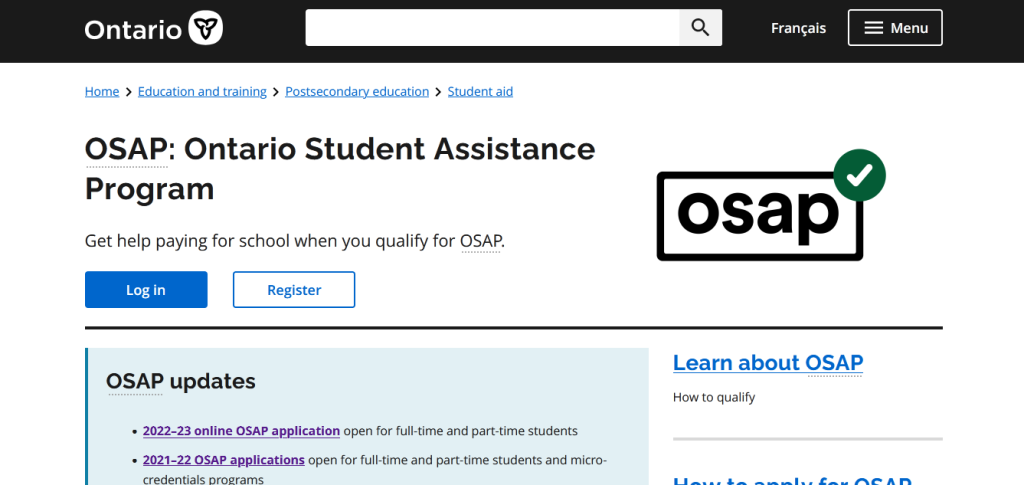

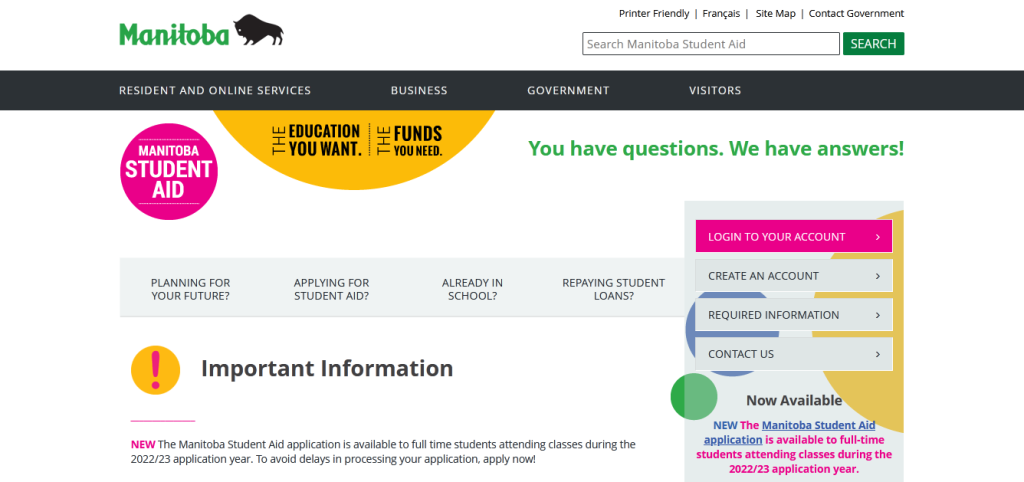
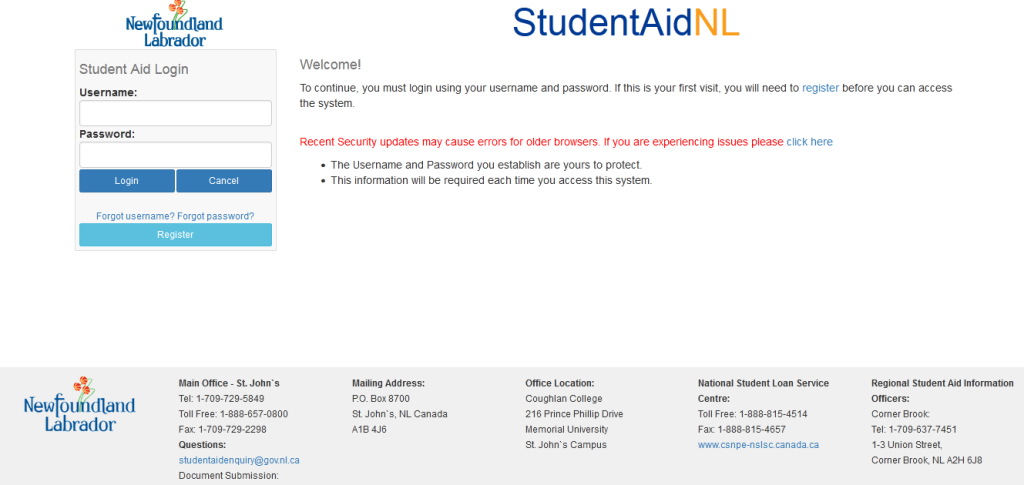
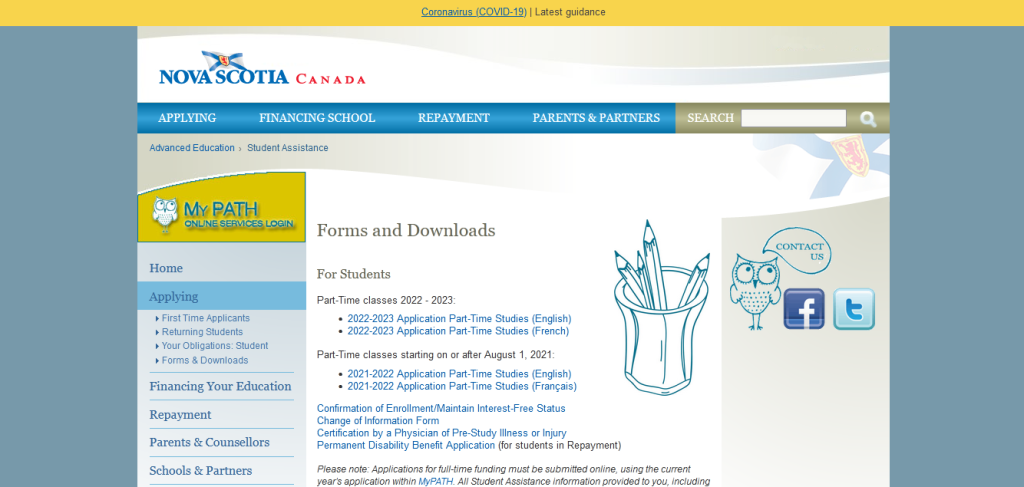
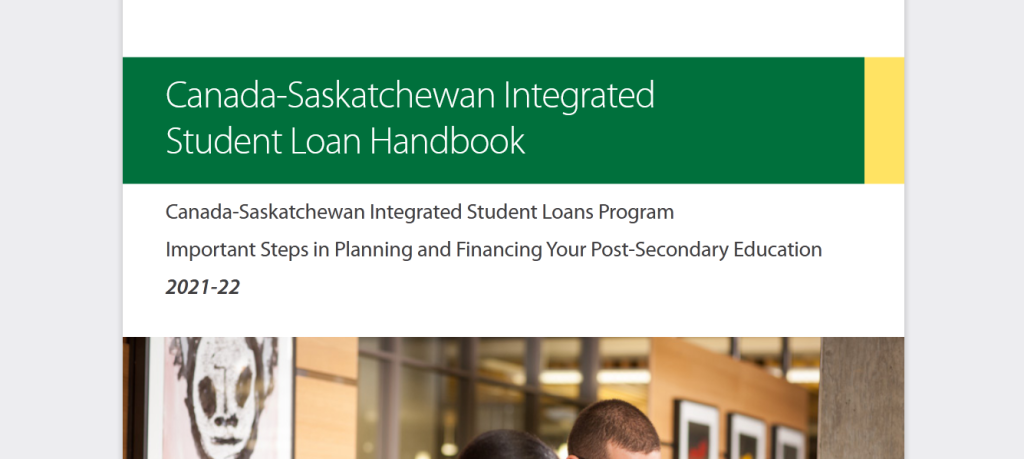






Leave a Reply